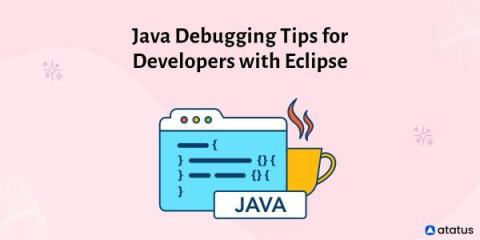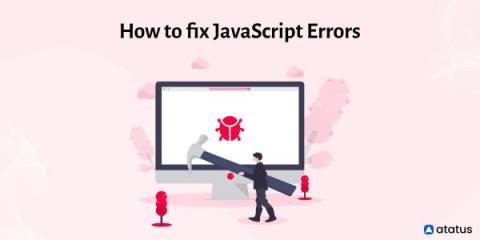Systems | Development | Analytics | API | Testing
Debugging
11 Java Debugging Tips for Developers with Eclipse
Debugging your code is one of every developer's worst nightmares. Debugging Java code is a difficult task. It is the process of detecting and fixing bugs or errors in code, projects, or applications. For any Java developer, debugging is a must-have ability. The ability to debug a Java program allows you to uncover any subtle bugs that aren't obvious during code review or appear when a specific situation occurs. This article offers some tips for debugging Java code.
Go vs. Rust: Debugging, Memory, Speed & More
Rust and Go in some ways are polar opposites. They are defined by their respective approaches to code. Rust is scrupulous, meticulous, and demands painful attention to detail; Go is laidback by contrast, easygoing, and simple. They both prize efficiency, but one in the means (Go) and the other in the ends (Rust). A true Go vs. Rust battle needs to compare the two languages in more depth. Golang and Rust owe their births to loathing for other systems languages (and by languages, I mainly mean C++).
Debugging Nest.js Applications: Examples, Packages & Config
There can be confusion out there given the size of the JS ecosystem. The differences seem pretty trivial, as a lot of tools seem to work in both limited and expanded capacities. But knowing the original or primary intent of a tool like React.js (it’s a library), can make it easier to grasp how it works and with which other JS tools. But this is where the distinctions become important – understanding the role of a progressive framework like Nest.js and how we got here.
Getting Started Remote Debugging Python Apps in PyCharm
Python really needs no introduction, but Google’s search algorithms demand it. Python is essential for its versatility and low barrier of entry for new users. It’s become a vital part of nearly every corner of development, especially in big data and machine learning which may not have progressed to where they are in 2022 without Python’s inception. All the same, debugging Python needs to be efficient.
Dynamic Logging with Rookout & Dynatrace
The only thing better than one awesome (and extremely useful!) tech tool is an integration with another similarly great tool. That’s why we’ve been working on building up our collection of new integrations because our main goal, always, is to make developers’ lives easier. And we do that by allowing you to immediately get all the live data you need from Rookout straight to your favorite tool. And the next step in doing so?
How to fix JavaScript Errors
Even if we have a good project plan and a logical concept, we will spend the majority of our time correcting errors. Furthermore, our application can run without obvious errors with JavaScript, we must use various ways to ensure that everything is operating properly. The majority of JavaScript errors in our web applications will be eliminated if we understand both the syntax and how JavaScript works. Furthermore, numerous web services can help us in catching all of them.
The Essential List of Spring & Spring Boot Annotations for Getting Started and Configuration
Spring Boot has made the Spring Framework more accessible than it already was. It is a streamlined form of the larger Spring Framework. For one, Spring uses manual configurations while Spring Boot contains a number of default config templates. Spring has a number of dependencies; Spring Boot, not so much (at least until build time). Auto-configuration makes it easy to get started with the Spring Framework (or even Java overall if you’re a true novice to coding) and the support community is huge.
GitLab Debugging with Auto Fetch for Correct Versioning
Developers update and augment their stacks all the time. No configuration is permanent, and a new tool can enter the picture at any given moment. The reasons vary, but new applications’ addition to the mix can upset your integrations from time to time, particularly if you’re adding security tools. Rookout is always aiming to support a fluid experience, and that’s what is behind our latest updates to our Gitlab integration.
What is Clojure? Functional Programming for the Java Ecosystem
Most programming languages are built on procedural programming, but there is this niche of dialects built for “functional programming,” where code classes are dynamically created based on the rules in the functions you write. If you could put languages on a scale of most procedural to most functional, you’d find Clojure sitting at the edge of the latter. What is Clojure? Who uses Clojure? What’s the best Clojure use case?











